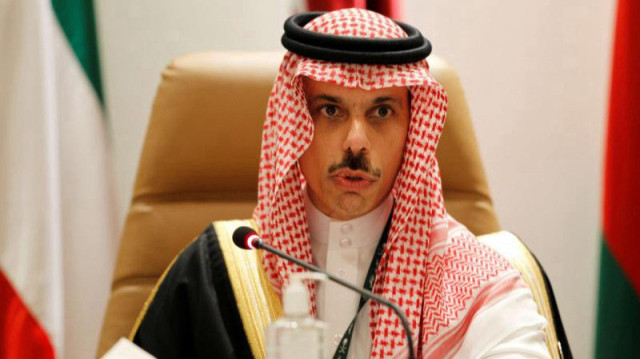Tensions Rise Over Trump's Gaza Resettlement Plan
A confrontation brews as Jordan's King Abdullah II staunchly opposes U.S. President Trump's contentious proposal for Palestinian resettlement, highlighting the regional and international tumult it has triggered.
Published February 07, 2025 - 00:02am

Image recovered from arabnews.com
Jordan's King Abdullah II has emerged as a pivotal figure in the Middle East's diplomatic landscape, as he continues to vociferously oppose U.S. President Donald Trump's controversial plan to annex the Gaza Strip and resettle its Palestinian population elsewhere. This proposal has not only inflamed tensions across the region but has also been met with widespread international condemnation.
The plan, unveiled by President Trump, suggests resettling Palestinians from Gaza and leveraging U.S. control to develop the area economically. However, this has been perceived as a direct threat to Palestinian sovereignty and has elicited apprehensive reactions from various global leaders and regional powers. The announcement has prompted King Abdullah to assert Jordan's unwavering support for Palestinian rights and sovereignty, emphasizing the need for a state based on pre-1967 borders, encompassing the West Bank, Gaza Strip, and East Jerusalem.
King Abdullah has consistently repudiated any attempts to annex land or displace Palestinians, a stance he reiterated during a meeting with Palestinian President Mahmoud Abbas at the Al-Husseiniyah Palace in Amman. The discussions, attended by high-ranking Jordanian officials, underscored Jordan's commitment to a sustainable ceasefire in Gaza and the delivery of humanitarian aid, reinforcing Jordan's historical role as a stabilizing force in the region. The King's firm rejection of settlement expansion and his insistence on maintaining Palestinian ties to their land highlight Jordan's pivotal diplomatic role in the Middle East peace process.
President Trump's proposal has encountered significant resistance, not only from Jordan but also from neighboring countries like Egypt and Saudi Arabia, which have historically supported the Palestinian cause. Both nations have firmly rejected any implications of absorbing displaced Palestinians, emphasizing their commitment to regional stability and the sovereignty of Palestinian lands. The universal denunciation of the plan hints at the broader geopolitical dynamics at play, where regional allies are uniting against perceived external pressures that threaten the Middle East's already precarious balance.
The Jordanian position is bolstered by similar sentiments expressed by Saudi Arabia. In a recent communication between King Abdullah and Saudi Crown Prince Mohammed bin Salman, the leaders discussed the broader implications of the plan and reinforced their collective opposition to any initiatives that undermine Palestinian rights. This unity among Arab nations illustrates a shared perspective that views any forced resettlement or annexation as an infringement on national identities and a potential catalyst for unrest.
Commentary from international political analysts suggests that public opinion in Arab states might respond with vehement objection, potentially leading to demonstrations. Emily Harding from the Washington-based Center for Strategic and International Studies anticipates that reactions could range from confusion to full-fledged dissent, reflecting the deep-seated frustration with policies perceived as unjust or unilateral.
King Abdullah's upcoming trip to Washington is poised to be another diplomatic linchpin. He is expected to confront President Trump directly, articulating Jordan's and the broader Arab world's disapproval of the resettlement proposal. This diplomatic offensive is not just about opposing a policy but also about safeguarding regional stability and the socio-political fabric of Jordanian society, which could be deeply affected by any large-scale displacement of Palestinians.
In this complex geopolitical landscape, President Trump's plan exemplifies the challenges of navigating Middle Eastern politics. The diverse reactions from regional leaders like King Abdullah and international condemnation illuminate the profound divides that continue to stymie lasting peace solutions. The situation underscores the need for dialogues rooted in mutual respect and recognition of sovereignty, as the region strives to find a path toward enduring stability and peace.






